What is it like to be a black commissioner in the British TV industry? Four execs discuss the challenges they have faced and their approaches to overcoming them, plus how the industry operates and where it needs to change.
Panellists:
Sarah Asante – commissioning editor, BBC comedy
Lara Akeju – commissioning Editor, ITV daytime entertainment
Adrian Padmore – commissioning editor, Channel 5
Natalie Rose – commissioning editor, UKTV
Chair:
Desiree Ibekwe – reporter, Broadcast
In your journey to becoming a commissioner, did the lack of black people in the field affect you at all?
LARA AKEJU: “I didn’t think about it in those terms but I am aware that there are few black commissioners, and that people in the industry have been surprised to see a black commissioning editor. I once went to the gallery of a show that I commissioned and was asked whether I was shadowing someone. I had to tell him that I was his commissioning editor.”
ADRIAN PADMORE: “I can remember when I met [former BBC execs] Maxine Watson and Sam Bickley when I was a development producer. Just seeing two people commissioning who were black and had a world of experience behind them made you realise that getting there was a possibility. It’s really important to see people doing the roles that you might want to do in future.”
SARAH ASANTE: “Lara and I were in the same cohort of the assistant commissioner scheme, and those first couple of weeks, where we did our training and visited every single broadcaster together, gave me the view that we were the future, and not the ‘other’. It felt like we were an injection of interesting voices and energy.
I remember when everyone first spoke about their CVs, the programmes they worked on and their ambitions stepping into the commissioning world. Everyone was nodding profusely. It didn’t feel intimidating, it felt like the right time for everyone involved.
It was like being invited to a party that you knew was going on, and where the door was, but maybe you hadn’t stepped through yet. Once you’ve gained the experience, the contacts and all of those other things that you need in this industry, someone asking you to take the reins feels like a natural next step, rather than tokenistic.”
What has it been like operating in white spaces?
NATALIE ROSE: “We all have to acknowledge that when you are black, and working in a majority white space, it doesn’t feel as comfortable as it does on this Zoom call now. I agree that it is great to see some examples of black people really doing well, but there aren’t enough of us.
In all of the jobs I have had in TV, I have been the only or one of very few people of colour, in a white space. It didn’t feel different stepping into commissioning, but it is something that we have to acknowledge because it affects people of colour because it is something that your confidence is tied to.
To be the best person that you can possibly be and feel empowered to share the ideas that you have, there has to be more diversity. There’s a shorthand when you’re with someone who thinks and looks like you and can understand your lived experience.”
SA: “Being the only black person in the room is very, very familiar. I was not shocked when Sandra Oh said that she was shocked that she was the only Asian face in sea of white faces [shooting in the UK]. That story made the news around the world, but I don’t think anyone on this panel would clutch their pearls at that one. It’s a shame. Change has been coming and I hope that we can serve as inspiration to what is possible.”
There has been a lot of discussion about the validity of diversity schemes, what’s your take on their efficacy?
SA: “All of us have been in our role less than five years and I would argue that Broadcast wouldn’t have been able to get this panel together five years ago. As much as people talk down on schemes, I don’t mind a scheme if it produces the commissioners that the Assistant Commissioner scheme has.
You could fill this panel with five or six more faces that have come up in the last few years and ask the question why has it taken so long? Because when you look at people’s CVs and people’s experiences, it just doesn’t add up.
AP: “What is unsurprising is the amount of time we have been working to get to this position – it is many many years. And if you look at some other commissioners who aren’t black, they haven’t been working for many, many years. What we have to do now is accelerate the amount of quality people who are out there like us, who can be part of TV and not feel different, and if we can do that and take so momentum from that, it would be important.”
NR: “Diversity schemes can sometimes be a bit of a double-edged sword. I did the series producer course and there are lots out there, but I think there needs to be a more even spread. There are a lot of schemes at entry level and that are pitched at our level, but if we are going to look at the retention rate of people of colour at levels where there should be more seniority, are they being supported or not and why? Are there enough schemes when you are trying to jump from PD to SP or SP to Exec. The question of where are the black execs and series producers is asked constantly, and there are so few.”
It appears that there is a point where black people aren’t getting promoted and eventually leave the industry. Why is that?
LA: “The paucity of SPs and execs is frustrating for me as a commissioner, and I know lots of people leave the industry because they are not getting the breaks when they probably should. That’s really disappointing. It’s great that we have all managed to become commissioners but that core in the middle needs to become much more diverse for the industry to change.”
NR: “The industry needs to talk to the people that we have lost and ask them why they left. What are those breaks, Lara? We work in an amazing, creative industry, full of super diligent people, but as with every other industry we have a mixed ecology of talent – so why does our industry feel so white. What we are saying is, there should be more access.
SA: “Why there is a drop off is a big question that requires attention because people are allowed to leave, no questions asked. If we can collate what can be gleaned from an exit interview or a survey or something like that, we should.”
How could the industry be better for people of colour?
NR: “I don’t think it needs to be scientific, there’s no use pouring over data. In this wave of proper enlightenment and being forced to look at systemic racism there are so many missed opportunities. People are asking in the wake of BLM, what should I be reading? But there have been so many stories that have been shared and opportunities to be an ally.
Speak up if you see something that’s wrong, or racist and you are in a position. We are all influencers, so if you are in a positon of privilege, speak up for the person who can’t.”
SA: “The industry also has a language issue, using phrases like ‘a safe pair of hands’ and getting a mate in that you worked with in your last project. There are constant ladders being pulled behind people everywhere you look. I think that’s tough because whereas we have had to get comfortable being the only person like us in the room, certain groups have not. They have all felt comfortable seeing their Guardian-reading brethren and sisteren in the room. Having different faces, opinions and even accents, for God’s sake, would really enrich the conversations and ideas.”
What is the role of production companies in ensuring diversity?
SA: “Whether you’re a black commissioner or a norther commissioner, you can only choose from what comes through the door. Yes, being a black woman commissioner means that there are certain things that on my radar, but that is really serviced by what comes through the door. I think a lot of the supply chain could look left and right and wonder who they have in their midst.
Our industry is serviced by free labour. Come and be a runner for three months, no pay and you’ve got to have a drivers’ licence. Who do they think they are talking to when they put a mandate like that? Commissioners are looking for authentic stories and those stories come from the supply chain.”
AP: “People employ people who look like themselves, and the industry is very white. It’s about being open to other experiences and other ways of living in the world. It is for broadcasters to say to companies, this is what we want, go out there and go and find it. And when you come back and you haven’t found it, go back out there again, you have to keep looking.
Also for production companies, when you are seeing 10, 15, 20 applicants coming through your door, who are those people? What are their backgrounds? You need to think about how you can assemble a more diverse team. If you can take in a wider pool of people, it would really benefit your shows.”
LA: “The power that we have as commissioners is to tell producers to do better. One thing I am doing right now is asking producers who is on their team and if the diversity isn’t there offering our help. Also producers need to be open minded, don’t just get black people involved when you’re dealing with black talent or black subject matter, please think of them when they are interested in your programme.”
How do you think on-screen diversity can be improved?
LA: “In daytime entertainment, I’m aware of the need for more diversity in quiz hosts. It’s not just about contestants. I’ve just commissioned a number of shows with black and Asian presenters that would hopefully diversify ITV entertainment. It’s about who is the person you see everyday and the figure of authority.”
AP: “On-screen talent should be one of the easiest ways to get diversity on screen when you think about it. You’ve got the key person on screen and you can pick anyone. That should be the easiest way to get a diverse person on screen, the fact that we haven’t had that speaks volume. There are loads of quality presenters out there, we just have to find them.
The difficulty comes when you’re talking about contributors because you are following access. But even in those areas, if you have a particular organization that you are following, that’s a way you can look for diversity.”
Natalie, you recently commissioned a new talent in Big Zuu. Do you think that black talent are given enough of a chance to bed in past the first series of their show?
NR: “Historically no. I think that we do need to have a conversation at some point about low profile necessarily affecting people of colour more than anybody else. If there is someone who doesn’t have as much profile as you want, you can create a way to get them on another show that you are already doing because, otherwise the chances are they are going to wander around in the wilderness feeling resentful and seeing opportunities being afforded to other people.”
LA: “We have a real responsibility when we say: our viewers don’t know them or they don’t have a profile, that’s when we work out how we give them a profile and opportunities within our slate.”
Are you optimistic that the industry is on the cusp of genuine change?
SA: “I’m optimistic.”
LA: “Me too, because we’re here and we and our teams are doing lots of work to make things better.”
AP: “Sarah said it before, five years ago you couldn’t have hosted this panel. It is changing.”
NR: “There has been change and I’d like to think we can collectively be more human and that we are part of generation where we are going to see more change. That will come from honest conversation and acknowledging that racism exists. There is some fragility about talking about this and while that’s expected if we want to see change, we’ve got to get through that.”
- · This roundtable was streamed live last week to 300 Broadcast subscribers and 50 Creative Access trainees






















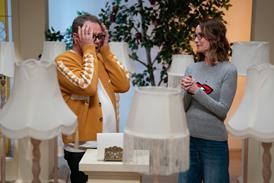
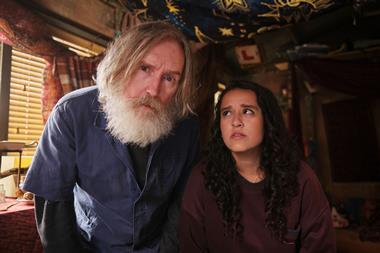

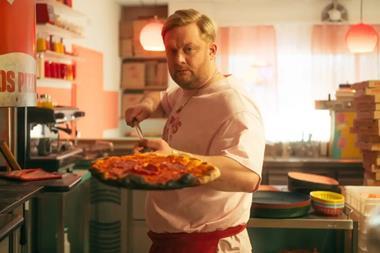
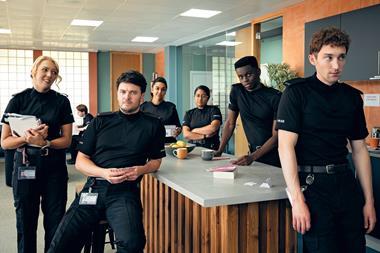

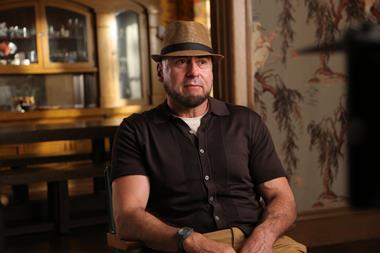
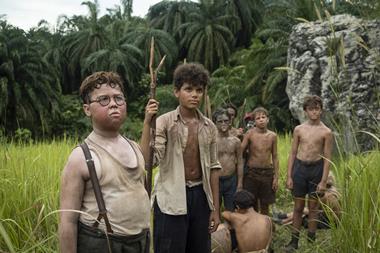
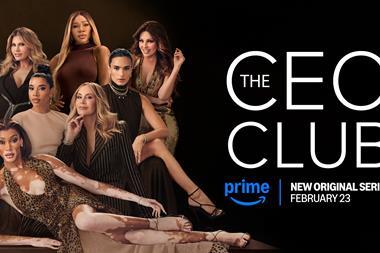



No comments yet